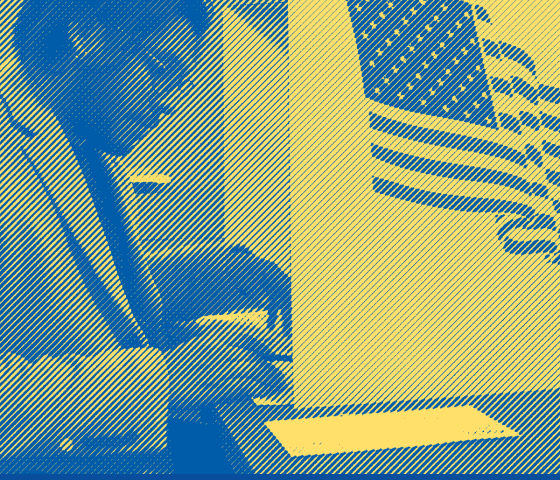What exactly is a drone?
A drone is any aircraft that is operated without human piloting inside or on the aircraft. Drones come in various shapes and sizes, and they can be remote-controlled or pre-programed. The technical name for drone is “unmanned aerial vehicle,” or UAE.
What can a drone do?
Drones can be outfitted with any technology imaginable—cameras, infrared/night vision, heat sensors, or weapons—both lethal and non-lethal. Drones are currently being developed that are small enough to fly into homes, take and transmit pictures and video, camouflage with their environments, and even recharge themselves from a telephone wire or the sun.
Why do we need drone legislation in Iowa?
Drones have now become standard-issue with many Iowa police departments.
In 2014, the ACLU of Iowa helped pass legislation in Iowa that put important safeguards in place, barring the use of drone-derived evidence in court unless it was obtained pursuant to a search warrant or otherwise in accordance with state and federal law. We see a clear need to close the loophole created by the exception of being otherwise "consistent with state and federal law," which has the potential to undermine the warrant requirement.
What’s more, further regulations are necessary to prevent the widespread use of drones for surveillance by law enforcement. For example, law enforcement officers in Iowa have expressed an intention to use drones for “crowd control” at public gatherings. In addition, Iowa law must clearly prohibit the use of weaponized drones.
Drone footage and data acquired that is not the subject of a search warrant should be deleted promptly, and never stored and catalogued by the government. Lawmakers need to act quickly. As police and private industry continue to acquire drones, it will become even more difficult to regulate them effectively.
What can we do to protect our privacy?
Drone use over private property, including curtilage (front and back yard), should occur only with a search warrant based on probable cause – the same standard used to search someone’s house or business. We should implement data retention limits, prohibiting the retention, sharing or identification or identifiable images of individuals who are not the target of the ongoing investigation that justified the drone deployment. That means, if a drone is authorized to spy on one home, it shouldn’t spy on every other house on the way there from the police station.
Additionally, there should be a prohibition on repurposing collected information, that way; information collected for one purpose cannot be used for another purpose.
What can we do to protect our safety?
Prevent both public and private drones from carrying weapons; an officer on the ground has a very different perspective on whether force is necessary and what kind of force is appropriate.
What are the benefits of drone use?
There is a wide variety of beneficial drone uses, like firefighting, chemical and HAZMAT detection, monitoring of pollution, pipelines, wildlife, traffic, and floods, search and rescue, delivering medical supplies to remote areas, etc.
What about private drone use?
Unlike the government, private drone users have free speech rights that could be implicated by bans on drone use. However, existing privacy torts and peeping tom laws already cover many of the abuses from private drone users. A good example would be a law preventing a neighbor using a telephoto lens from taking photos of you; that same law would prevent your neighbor from doing something similar with their drone.
